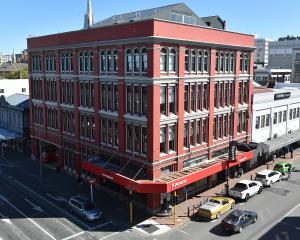Many of the Otago Regional Council's new bus services are "booming" but some, including the new city loop service, are "doomed" because of low passenger numbers.
A comparison of passenger numbers from the quarter ending December 2007 with the December 2008 quarter showed improvements of up to 93%, a report to the council's policy and resource planning committee showed yesterday.
Twenty-three ORC-contracted bus routes experienced improvements in passenger numbers, the biggest increases being on the Balaclava route, up 93% to 42,052; Garden Village, up 64% to 10,266; Waverley-Highcliff, up 50% to 10,467; and Peninsula, up 42% to 15,650.
Declines were recorded in services to St Kilda/Shiel Hill-Waverley, down 18.3% to 7950; and Pine Hill, down 4.5% to 17,153.
The new City Loop service, which was formerly the failed campus-route service, showed since November 17, 2008, passenger numbers had only once been more than 200 in a week.
Since the start of the year, it had only carried 1005 passengers.
Committee chairman Michael Deaker said the numbers showed the routes that had been adjusted, extended, made more frequent or had new bus shelters installed by the council in the past year were "booming".
But the lack of numbers in both the new City Loop and Mosgiel Loop services meant those routes were "doomed" as soon as their contract or trial expired.
As buses on both services were often empty, he repeated his message to the public: "Use it or lose it."
To try to attract students to use the City Loop service, timetables had been included in enrolment packs and posters were up around campus.
Cr Louise Croot said it appeared some tourists were using the service to get from the University of Otago to the Railway Station or Chinese Garden.
Cr Bryan Scott suggested the council needed to look long-term at the route, as, if the new office block was built on the harbourside, a bus service linking the area with the city would be a positive thing.
Chief executive Graeme Martin said it was worth noting that the improvements to the bus services which were attracting more passengers did come with a cost.
A report on the feasibility of public transport services to Warrington and Seacliff was also presented to the committee.
It concluded it was not viable to run special bus services to the two communities.
Instead, residents should be encouraged to take the weekday Palmerston-Dunedin bus, using informal park and ride at Evansdale and Waitati.
The council had also put out requests for tenders for five bus-services contracts, which included the Maori Hill/Prospect Park service, being replaced by two "out-and-back" routes.
Another change was the Roslyn/Wakari/Maori Hill/University route, being replaced by two shorter routes which were to give extended coverage of Wakari and Dunedin North.
Additional services were also being sought for the Port Chalmers/Peninsula route to fill long off-peak gaps.
The successful trial of the Concord/Kaikorai Valley/University service meant it was to be let as a two-year contract.












